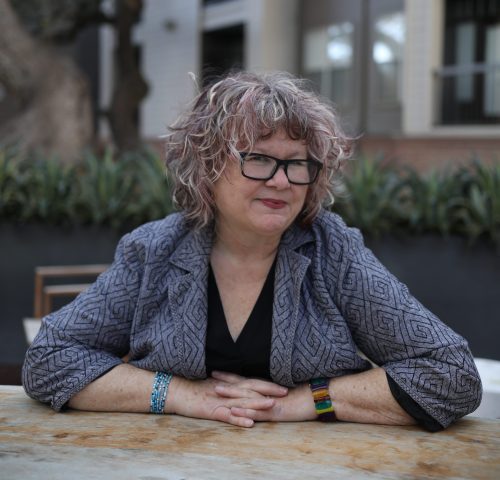Ultimately, it is a personal identity that takes a beating in the aftermath of trauma and where the agency, dignity, and imagination of a flourishing life are short-circuited.
As survivors, we know this all too well.
I just completed a year-long integrative project for my Master’s Degree that explored how women rewrite their lives in the aftermath of religious trauma. This has been very personal for me, as my own story of trauma served as the catalyst and the backdrop for this work.
Institutional Control
For this project, I had the privilege to interview nine people who were raised in strict religious systems that were riddled with misogyny and sexist ideas about gender. The indoctrination and tactics of control over these young girls produced classic symptoms of complex trauma. By adulthood, the interviewees had a distorted sense of themselves, severe passivity, trouble with decision-making, and a lack of imagination to consider opportunities outside the rigid ideal someone else had created.
Their stories reflected my own journey as someone raised in a religious system that demanded conformity of beliefs, thoughts, and actions to such a degree that I had little sense of my own identity. The institutional demands for silence and conformity meant we had to hide the parts of ourselves that others disapproved of including ambitions, desires, and emotions. Those who couldn’t identify with ideal womanhood either internalized the idea that there was something wrong with them, or they worked hard to keep their true selves a secret.

Interviewees reported taking years to recover what was lost in those years of captivity, and most acknowledged, even at midlife or older, that they are still working through their identity issues.
For most of us, healing comes in fits and starts and in tiny awakenings.
Those coming out of trauma are desperate for wholeness and hopeful they can return to a semblance of normalcy. But instead of returning to an old draft of ourselves, the key seems to be to revise and write new narratives.
A Complex Healing
Judith Herman’s work on Complex Trauma has been instrumental in this work and helped me connect the dots between my experiences within religion and the trauma I feel in my body. Her research shows that a victim of chronic trauma may feel like she is irrevocably changed or she may lose the sense that she has any self at all.
Even after release from captivity, the victim cannot assume her former identity. Whatever new identity she develops in freedom must include the memory of her enslaved self. Her page of her body must include a body that can be controlled and violated. Her image of herself in relation to others must include a person who can lose and be lost to others. And her moral ideas must coexist with the knowledge of the capacity for evil, both within others and within herself. If, under duress, she has betrayed her own principles or has sacrificed other people, she now has to live with the image of herself as an accomplice of the perpetrator, a “broken” person. The result for most victims is a contaminated identity. Victims may be preoccupied with shame, self loathing, and a sense of failure.
On first reading, Herman’s words feel bleak; suggesting that maybe healing isn’t possible. But as I reflect longer, I see the truth and the beauty that lies in the reality of our lives as trauma survivors. We cannot return to before.
For those of us raised in traumatic situations, there is no ‘before’
We can work through the shame, the sense of failure that works to contaminate, and gain skills of resilience and agency. But what of wearing our scars without shame? Our trauma is part of our identity as survivors, but often we spend so much time trying to escape the ugly parts we don’t even notice the way they have woven into our identities.
I also see in Herman’s words something I haven’t seen before – a call to embrace the beauty of the marred body/spirit. Instead of trying to escape to a new identity free from the horror, how might I re-imagine myself with the scars? How do I make peace with the complexity of my own moral ideals in tension with my (and others’) capacity for evil? I have been living with a contaminated identity because I haven’t been able to conceive a more complex (and true) image of myself.
New Narratives
I am currently playing around with writing as a metaphorical framework for how to think about recovery. More than a cognitive exercise, this is a creative and artistic path that allows us the freedom to explore, play, erase, and rewrite as we hone the concept of our true selves. This framework has brought an important energy to my journey and gives me room to imagine and embrace the complexity of who I am.
By choosing to write and rewrite our lives, either literally or metaphorically, we are standing in protest against the domination of religious experience that values absolutes, reason and right answers over imagination, messiness and the lives of people. Writing new lives is a way to exercise and grow our agency for the sake of our own liberation, to break free from the rigid constraints that have kept us from our true selves.
For those of us learning to trust ourselves and giving ourselves permission to play with ideas and identity, we can rewrite our lives with conviction and abandon and reimagine a God-human story that feels more real to our experience and can work as a catalyst for a new way to think about ourselves and the world. This new way forward means writing for ourselves with our own voices, ambitions, and desires and not simply letting others write our story.
References – Judith Herman, Trauma and Recovery, (New York: Basic Books, 1992), 94.
Guest Post Disclaimer: Any and all information shared in this guest blog post is intended for educational and informational purposes only. Nothing in this blog post, nor any content on CPTSDfoundation.org, is a supplement for or supersedes the relationship and direction of your medical or mental health providers. Thoughts, ideas, or opinions expressed by the writer of this guest blog post do not necessarily reflect those of CPTSD Foundation. For more information, see our Privacy Policy and Full Disclaimer.

Beth Alford is a communication strategist, writer and independent scholar. Her writing combines her personal experiences of complex trauma with academic work in theology, religious trauma, culture and gender studies. You can find more of Beth’s work at thebethalford.com.




